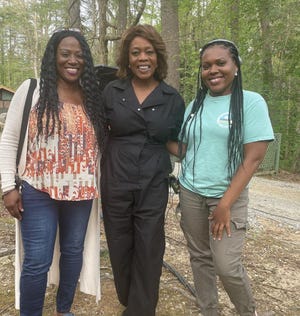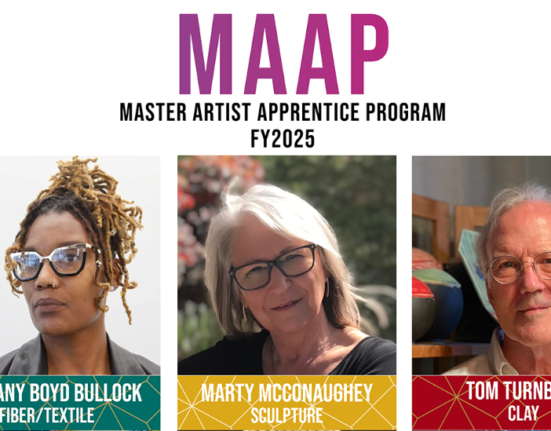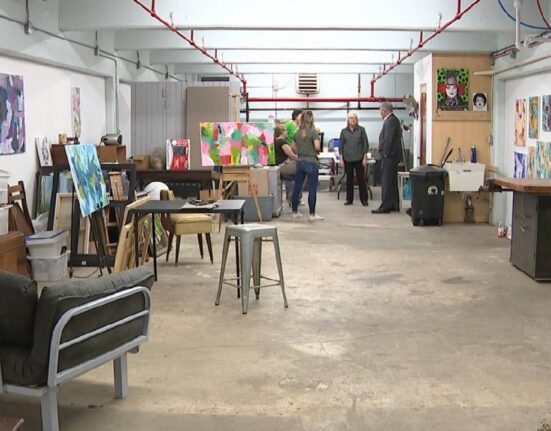Clark Nesbit planned on spending his retirement traveling and enjoying life after a 40-plus-year career as a special needs educator. Instead, he is teaching the next generation about his passion for theatre.
A year ago, he created a nonprofit theatre production company called No Dreams Deferred and began a partnership with the Simpsonville Arts Center. The two groups work together to present theatre performances with a Black cast.
Nesbit said his larger goal is to form South Carolina’s first Black theatre festival for Black artists to have a safe place to perform, develop skills and become aware of the possibilities within the industry.
“You can’t seek what you don’t know or what you haven’t been introduced to,” said Nesbit. “I want to make sure they have the information and access to people they can relate to and look like and be encouraged by.”
He visualizes a festival featuring guest productions, new play readings and workshops from professional Black theatre actors. He said the entertainment will provide information and hands-on opportunities to learn about lighting, sound, costume and set construction among acting roles, or as Nesbit calls it, “artistic skills that pay the bills.
“We don’t have a ton of light and costume or set designers,” Nesbit said. “We can create dialogue and conversations and workshops that get to young people early so they can have an interest.”
His two-weekend adaptation in February of playwright Lorraine Hansberry’s “A Raisin in the Sun” had an all-Black cast, except for one character. The play crowd was reflective of the community. The Simpsonville Arts Center and Nesbit want to impact the arts through programming and a festival.
There is no timetable for how long the collaboration between No Dreams Deferred and Simpsonville Arts Center will last. The initiative is the beginning of a transformative arts effort through both programs and a festival to raise awareness.
“We’re committed to appealing to a diverse group of artists, so we are thrilled to have this company here,” said Melissa Sturgis, manager of the Simpsonville Arts Center. “There’s not really a lot of opportunities for Black actors, playwrights, and set members. The city is here to help (Nesbit) spread the word, introduce the community to tremendous plays and educate the community to see something they haven’t seen before.”
The film industry working to become more diverse
Over the past four years, South Carolina’s Black filmmakers have had the attention of Hollywood.

When Destiny Macon earned the Indie Grant in 2020, her $30,000 investment from the South Carolina Film Commission (SCFC) and Trident Technical College got her screenwriting and directorial talents noticed.
Macon and HBO produced Talk Black — a 14-minute short film about a woman engineer navigating corporate life.
In June 2024, another South Carolina Black filmmaker and Indie Grant winner, Jason Gourdine, will begin pre-production for a horror film, Haant. He figures to have millions of dollars of backing, according to Dan Rogers, manager at SCFC.
“We want more film production around the state,” said Rogers. “But, you go where the crews are, and the Upstate doesn’t have crews.”
He said a film budget would require a lot of money from outside South Carolina. It also would require giving billions in incentives for filmmakers, similar to Georgia and its officials making accommodations to bring in more production efforts.

Macon and Gourdine are part of the SCFC Wide Angle Program and participated in the incubator for South Carolina content creators.
According to Rogers, Wide Angle Program connected Gourdine with Effie Brown, creator of “Dear White People,” to guide his screenwriters into the proper channel. Although Macon and Gourdine needed to leave South Carolina to chase their film direction and writing dreams, the resources to build within this industry are close by.
“It’s a testament on how this program could grow in the future, or find someone to pass the baton,” said Matt Storm, SCFC manager. “It’s implicit upon us in a governmental role to make something like film a widespread availability.”
State bill could provide funding for more arts efforts
Both film and theatre companies in South Carolina could receive tax incentives if Bill 4020 is approved. The bill is waiting to be read at the Senate Finance level.
Such a decision on the state level could help Nesbit and his nonprofit production company. The additional help is needed for Nesbit to create his dream Black theatre festival and Macon can continue on her quest to bring light to the state’s film scene.
“I want to put this area on the film scene and create representation,” said Macon. “I want to give more opportunities to express ourselves through art, especially.”

As her connections deepen within the industry, Macon is working alongside the Urban League of the Upstate as an ambassador to recruit more young professional Black film participants in South Carolina.
“The Urban League is committed to film, television, entertainment and expanding it through the Upstate and expanding it through our hub in Spartanburg, as young creatives are often left out of business opportunities,” said Gail Wilson Awan, president of the Urban League of the Upstate. “We’re committed to Destiny, being a woman of color, highlighting her talent and the work of others.”
In 2023, Wilson Awan and the Urban League set a paid internship for Yasmin Lee for production on Spartanburg’s own Michael Bravo for his upcoming film “Little Box of Hope,” another Black, local filmmaker. They have invested money into local filmmakers to create podcasts for mental and maternity health.
The Urban League’s request is a need for young professionals to help advocate for grants available for projects and mini grants. As of July 1, they’ll have more resources available that would align with missions and values.
Bill 4020 could help support their efforts and allow Nesbit the tax breaks to fully educate and inspire the next generation of Black theatre in South Carolina and beyond.
“God placed this on my heart to do,” said Nesbit. “We have to start getting to a place where we are willing to invest in our young people, so they don’t have the stress of finances, to receive this type of training and exposure.”
A 2025 Black theatre festival would involve bringing regional artists to perform workshops that could cost up to $4,000 per session and for locals to sponsor certain events or students. Nesbit envisions bringing in Atlanta playwrights Mary McCallum, Keith Franklin, and Jeneen Hammond, while also bringing an educational component from Kendra Johnson, professor of theatre at Clemson University.
Receiving grant funding for a festival would require a financial history or the ability to match, so funding a full three- or four-day theatre festival would be expensive or seem impossible without investors or tax breaks for his nonprofit.
“I want to make sure they have the information and access to people they can relate to and look like and be encouraged by,” Nesbit said.
– A.J. Jackson covers the food & dining scene, along with arts, entertainment and downtown culture for The Greenville News. Contact him by email at ajackson@gannett.com, and follow him on X (formally Twitter) @ajhappened.






